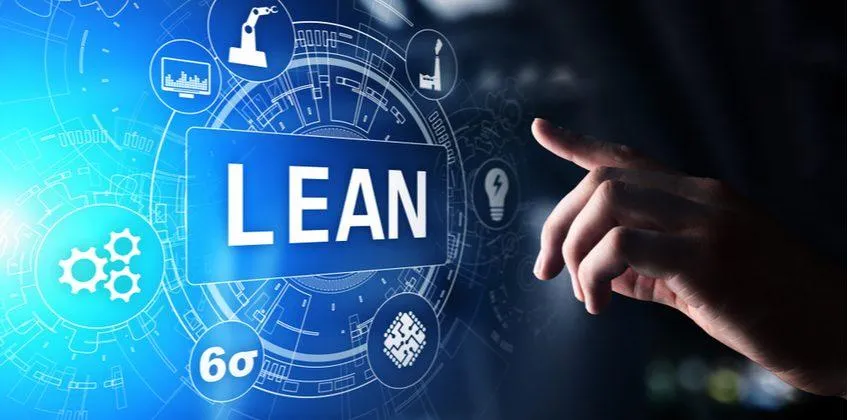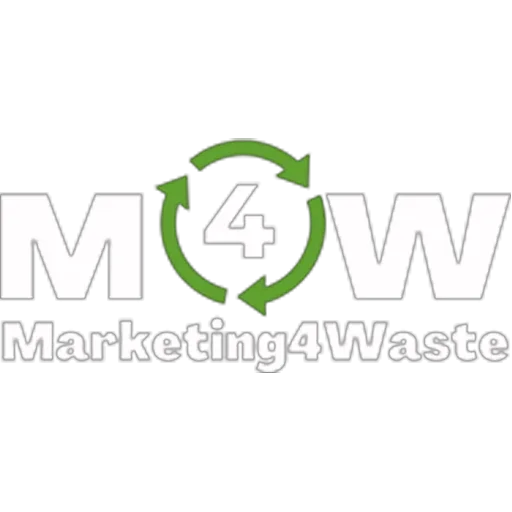Increase the Revenues of Your Waste Company With the Tips Shared in Our Blog Articles

Lean Management and AI: The Best Business Strategy To Make Your Company Thrive
In today’s fast-paced and ever-evolving industry, waste management companies are under constant pressure to reduce operational costs, enhance efficiency, and meet the rising expectations of customers and regulatory bodies. As the Waste Management Alchemist, I have spent years perfecting the blend of traditional lean management principles with cutting-edge technologies like artificial intelligence (AI). The result? A business strategy that not only makes your company thrive but also sets you apart in a competitive market. In this comprehensive guide, I will delve into the transformative potential of integrating lean management with AI and smart technologies to revolutionize your waste management operations.
The Power of Lean Management
Lean management, originally developed by Toyota, is a systematic approach aimed at minimizing waste without sacrificing productivity. It's about creating more value for customers with fewer resources. For waste management companies, this means streamlined operations, reduced costs, and improved service quality. Let us explore the key components of lean management and how you can implement them in your company.
1. Value Identification
The first step in lean management is to understand what your customers value most. This could be reliability, cost-effectiveness, or a combination of these factors. By identifying these values, you can focus your efforts on what truly matters to your customers.
- Understand Customer Needs: Conduct surveys, gather feedback, and analyze customer data to understand their priorities and pain points.
- Prioritize Core Services: Identify and prioritize the services that directly contribute to customer satisfaction. This could include timely waste collection, efficient recycling processes, and transparent communication.
2. Value Stream Mapping
Value stream mapping involves mapping out every step in your waste management process, from collection to sorting, recycling, and disposal. This helps you identify inefficiencies and areas where waste occurs.
- Map Your Processes: Create detailed maps of your processes to visualize the flow of materials and information. This includes collection routes, sorting facilities, and recycling centers.
- Eliminate Waste: Focus on removing non-value-added activities such as unnecessary transportation, waiting times, and over-processing. Streamlining these processes can significantly enhance efficiency and reduce costs.
3. Flow Optimization
Flow optimization ensures that waste moves smoothly through each stage of the process without interruptions. This involves eliminating bottlenecks and ensuring that resources are used efficiently.
- Ensure Smooth Operations: Regularly review and analyze your processes to identify and eliminate bottlenecks. This could involve optimizing the layout of sorting facilities or improving the scheduling of collection routes.
- Optimize Schedules and Routes: Use technology to create efficient schedules and routes. This not only reduces fuel consumption and travel time but also enhances the overall efficiency of your operations.
The Future is Here: Integrating AI and Smart Technologies
While lean management principles lay a strong foundation for efficiency, integrating AI and smart technologies can take your waste management operations to the next level. Here’s how these technologies can revolutionize your business:
Smart Bins
Smart bins are equipped with sensors and connectivity features that provide real-time data on their status. This technology offers several benefits:
- Real-Time Monitoring: Sensors detect when bins are full and need to be emptied, preventing overflow and ensuring timely collection.
- Efficiency Boost: By providing real-time data, smart bins help optimize collection schedules, reducing unnecessary trips and saving fuel.
- Customer Satisfaction: Timely waste collection improves cleanliness and reduces the risk of pests and odors, enhancing community satisfaction.
- Data Analytics: Collecting data over time can help identify patterns in waste generation, enabling better planning and resource allocation.
Route Optimization
Route optimization involves using software to determine the most efficient routes for waste collection trucks. This technology offers numerous advantages:
- Intelligent Routing: Route optimization software uses algorithms to calculate the most efficient paths for collection trucks, minimizing travel time and fuel costs.
- Dynamic Adjustments: In case of unexpected events such as traffic or weather conditions, route optimization software can adjust routes in real-time, ensuring smooth operations.
- Reduced Wear and Tear: Optimized routes minimize vehicle wear and tear, lowering maintenance costs and extending vehicle lifespan.
- Continuous Feedback: Use feedback from drivers and data from smart bins to continuously refine routes and improve efficiency.
Artificial Intelligence
Artificial intelligence can be used in various aspects of waste management, from predictive analytics to automated sorting. Here’s how AI can benefit your operations:
- Predictive Analytics: AI can analyze historical data to predict future waste generation patterns, helping in proactive planning and resource allocation.
- Automated Sorting: AI-powered robots and sorting systems can identify and separate different types of waste more accurately and quickly than manual sorting, increasing recycling rates and reducing contamination.
- Operational Efficiency: AI can optimize various operational aspects, such as maintenance schedules for vehicles and equipment, to prevent downtime and ensure smooth operations.
- Customer Service: AI chatbots and virtual assistants can handle customer inquiries and service requests efficiently, improving customer experience.
Implementing Technology in Lean Processes
Integrating smart bins, route optimization, and AI into your lean management processes can significantly enhance efficiency and service quality. Here are some steps to get started:
1. Smart Bins
- Data Collection: Start by installing smart bins equipped with sensors to collect real-time data on waste levels.
- Integration: Integrate this data into your central system to monitor and analyze bin status.
- Responsive Collection: Use the data to schedule collections based on actual need, reducing unnecessary trips and optimizing routes.
2. Route Optimization
- Software Implementation: Utilize route optimization software to plan the most efficient routes for collection trucks.
- Dynamic Routing: Implement dynamic routing to adjust routes in real-time based on traffic conditions, bin status, and other variables.
- Continuous Feedback: Use feedback from drivers and data from smart bins to continuously refine routes and improve efficiency.
3. Artificial Intelligence
- Predictive Analytics: Use AI to analyze historical data and predict future waste generation patterns, helping you plan and allocate resources more effectively.
- Automated Sorting: Implement AI-driven sorting systems to improve the efficiency and accuracy of waste segregation.
- Operational Optimization: Apply AI to optimize various aspects of operations, from maintenance schedules to customer service.
The Combined Impact: A Winning Strategy
By integrating lean management principles with AI and smart technologies, you create a robust strategy that drives efficiency, reduces costs, and improves service quality. Here’s the combined impact:
Efficiency Gains
- Reduced Waste: Minimize non-value-added activities and operational waste.
- Cost Savings: Lower fuel and maintenance costs through optimized routes and predictive maintenance.
Improved Service Quality
- Timely Collections: Ensure bins are emptied before they overflow, enhancing community cleanliness and satisfaction.
- Enhanced Responsiveness: Quickly adapt to changing conditions and demands, providing superior service.
Real-World Examples
To illustrate the impact of integrating lean management with AI and smart technologies, let’s look at some real-world examples:
Case Study 1: City of Oslo, Norway
The City of Oslo implemented a smart waste management system that includes smart bins and route optimization. The result was a 30% reduction in fuel consumption and a significant decrease in emissions. The system also improved collection efficiency and reduced the number of overflowing bins, enhancing community satisfaction.
Case Study 2: Rubicon Global
Rubicon Global, a waste management company in the United States, uses AI and predictive analytics to optimize their operations. By analyzing data from smart bins and using AI-driven route optimization, Rubicon has achieved significant cost savings and improved service quality. Their innovative approach has set a new standard in the industry.
Embrace the Future Today
As a waste management company owner, you have the power to transform your operations and lead the industry towards a more efficient future. By embracing lean management principles and integrating AI and smart technologies, you’re not just keeping up with the times—you’re setting the standard.
Let’s revolutionize the waste management industry together. Embrace lean management and AI, and watch your company thrive like never before.
Integrating lean management principles with AI and smart technologies offers a powerful strategy for waste management companies. By focusing on value creation, optimizing processes, and leveraging the latest technologies, you can achieve significant efficiency gains, cost savings, and improved service quality. Embrace this winning strategy and lead your company towards a thriving future.
All the best
Sam
The Waste Management Alchemist


© 2025 Marketing4waste - All Rights Reserved,
Marketing4Waste is a brand of MiM MarketingInterimManagers LLC
+1 801 804 5730

